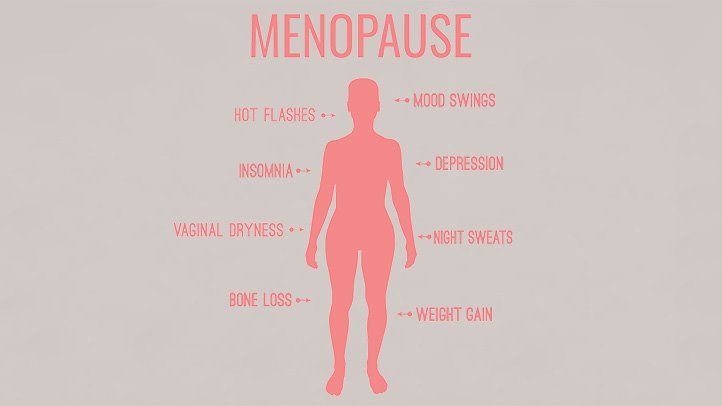What is Menopause?

The time in a woman’s life when the ovaries become less responsive to the pituitary glands, the egg-producing cells begin to disappear. Menopause, often called the change of life, or the climacteric, is rarely for the worse, and many women, it is for the better because once complete, fears of pregnancy are removed.
The change may begin between the late 30s and late 50s, but for most women, the transition occurs during the 40s. The changes are not abrupt, and often the gradual lessening of menstrual and ovarian activity lasts for several years.
Symptoms
Less than a quarter of all women going through menopause have upsetting symptoms to need medical help. The main sign for which assistance is sought is the hot flush, which accounts for 70 percent of visits to the doctor. This is followed by depression (40 percent), sweating (30 percent), abnormal periods (25 percent). Fatigue (20 percent), hair and skin changes (15 percent), and headache (10 percent). There are, for most women, some psychological adjustments to be made, and those need to understand.
The implications of the changes may be disturbing to a woman’s self-confidence and are often associated with other symptoms of ANXIETY, which are natural but unfounded. For instance, there is no evidence that women age more quickly or becomes less attractive after the change. Surveys suggest that in at least 80 percent of women, sexual responsiveness is either increased or remains unchanged. Sexual relations should be continued until the transition is complete. It would be best if you asked your doctor.
Several other factors may arise at the time in a woman’s life, which are largely coincidental. Her children may be leaving home, making the woman’s life dull and empty. The increasing and frustrating demands of aging parents may prevent the woman from countering her symptoms through outside interest or a job. The relationship with her husband may be under strain for other reasons.
What is Menopause?
Menopause is the cessation of menstruation and usually occurs in women aged 45-55. Symptoms, which include hot flashes, sweats, vaginal dryness, and anxiety, can be especially severe if menstruation stops abruptly, either naturally or after the ovaries’ removal. Candidiasis, if the discharge does not clear up within five days, see a doctor.
Menstruation sees a doctor if there is a sudden, unusual change in menstrual flow or if menstruation stops and does not restart after two months. See a doctor if you might be pregnant, bleed more than usual, or have severe pain.
Trending Health Topics
- ADHD
- Allergies
- Arthritis
- Bipolar Disorder
- Bunions
- Car Accidents
- Chron's Disease
- Common Cold
- COPD
- Depression
- Dry Skin
- Dry throat
- Eczema
- Fungal Infection
- GERD
- HIV/AIDS
- Hypertension
- Irritable Bowel Syndrome (IBS)
- Multiple Sclerosis
- Osteoarthritis
- Psoriasis
- Rheumatoid Arthritis
- Skin Disorders
- strep throat
- Type 2 Diabetes
- Uncategorized